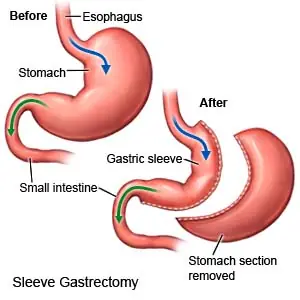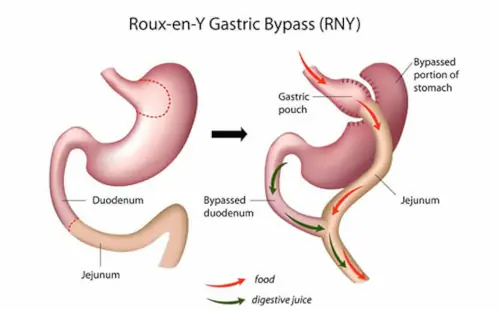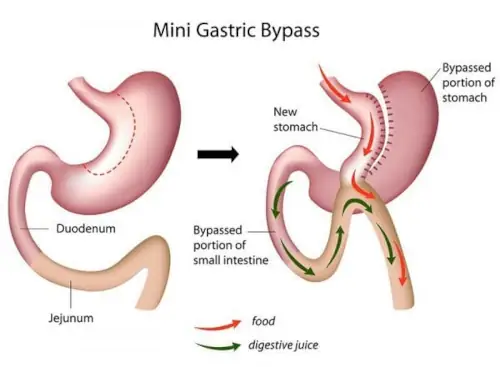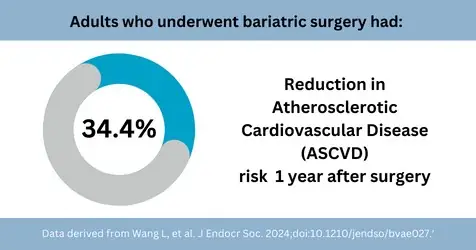Understanding Medical Tourism for Bariatric Surgery: A Dive into Tips and Insights

What is Medical Tourism for Bariatric Surgery?
Medical tourism for bariatric surgery involves individuals opting to undergo weight loss surgery in a foreign country rather than in their home country due to various factors. Medical tourism for bariatric surgery offers individuals the opportunity to explore treatment options beyond their immediate geographical location, often with the aim of achieving better outcomes or more affordable care.
Reasons why individuals might choose to pursue medical tourism for bariatric surgery –
-
Cost considerations:
In many countries, particularly the United States, Australia, New Zealand, Canada the cost of bariatric surgery can be prohibitively high, often not covered by insurance. Medical tourism allows individuals to seek more affordable options in countries where healthcare costs are lower. India is one such option when it comes to affordable medical tourism for bariatric surgery. Bariatric Surgery Cost in India is significantly lower as compred to these countries, without any compromise on quality.
-
Access to specialized procedures:
Some countries may offer bariatric surgery techniques or procedures that are not available in the individual's home country. This could include innovative surgical techniques or variations that are not yet approved or widely practiced elsewhere.
-
Reduced waiting times:
In countries with publicly funded healthcare systems, bariatric surgery may have long waiting lists due to high demand and limited resources. With medical tourism for bariatric surgery, individuals can often bypass these waiting lists and receive surgery more quickly by traveling abroad. Bariatric Surgery in India can generally be accessed at minimal or zero waiting times, making India one of the most preferred destination when considering medical tourism for bariatric surgery.
-
Quality of care:
While lowering of surgery costs with medical tourism for bariatric surgery is a significant factor, many individuals also seek high-quality medical care. Some medical tourism destinations are known for their advanced medical facilities, experienced surgeons, and high standards of care, which may be equal to or even better than what is available in their home country.
-
Privacy and confidentiality:
Some individuals prefer medical tourism for bariatric surgery to maintain privacy and confidentiality about their weight loss journey among their local community.
What are Metabolic Syndrome and Bariatric Surgery?
However, to get the best out of your surgery, it is important to thoroughly understand the procedure, types of bariatric surgeries available, indications for the surgery and how best to navigate your path for medical tourism for bariatric surgery.
Metabolic Syndrome:
Obesity is considered a central component of “Metabolic Syndrome” a cluster of conditions that include abdominal obesity, insulin resistance, hypertension, high cholesterol, etc. Metabolic syndrome significantly increases the risk of developing type 2 diabetes and cardiovascular disease.

Obesity is also closely linked to hypertension, as the excess body fat increases the workload on the heart and blood vessels, thereby leading to elevated blood pressure, which further increases the risk of heart disease, stroke, and other cardiovascular complications.
Addressing obesity and its associated metabolic disorders requires a multifaceted approach, including lifestyle modifications, pharmacotherapy, and in some cases, bariatric surgery.
So, what exactly does bariatric surgery entail? And who are the right candidates for Bariatric surgery?
Bariatric Surgery:
Bariatric surgery, also known as Weight loss surgery, encompasses a variety of procedures designed to help individuals with obesity lose excess weight and improve their overall health. Bariatric surgeries work by either restricting the amount of food the stomach can hold reducing nutrient absorption, or both. They are referred to as restrictive or malabsorptive procedures.
Restrictive procedures such as Intragastric ballooning, Lap Band, and Sleeve gastrectomy reduce the stomach's capacity to hold food without disrupting normal digestion. On the other hand, malabsorptive procedures like Gastric bypass and mini-gastric bypass reroute the small intestine to decrease the number of calories absorbed by the body, along with the reduction in the size of the stomach.
Now, who is an eligible candidate when it comes to bariatric surgery or medical tourism for bariatric surgery? Bariatric surgery is typically considered for individuals having a BMI of 35 and above; or a BMI of 30 or above with any associated diseases like high blood pressure, diabetes, sleep apnea, etc.
The eligibility criteria may however vary depending on factors such as overall health and medical history.
What are the different types of Bariatric Surgery?
The different types of bariatric surgery procedures are:
-
Gastric Sleeve Surgery:
One of the most effective and widely chosen weight loss surgery options, the Gastric Sleeve surgery, involves removing a significant portion of the stomach to create a “sleeve” or banana-shaped pouch.

Unlike some other bariatric procedures, Gastric Sleeve does not alter the natural order of the digestive system. As a result, it typically leads to lower complication rates, reduced malabsorption, and quicker recovery times. Its mechanism of action primarily revolves around restricting food intake.
-
Gastric Bypass Surgery:
Gastric bypass, also known as Roux-en-Y gastric bypass, is a form of weight loss surgery that involves reducing the size of the stomach and shortening the digestive tract.

This procedure divides the stomach into a smaller upper pouch and a larger remnant pouch, then rearranges the small intestine to maintain connections with both pouches accordingly.
By shrinking the size of the stomach, gastric bypass limits the amount of food it can accommodate, thereby reducing food intake. Additionally, a portion of the small intestine is bypassed during digestion, leading to decreased calorie absorption by the body and subsequent weight loss.
-
Mini Gastric Bypass Surgery:
The Mini Gastric Bypass, also known as One Anastomosis Gastric Bypass, is a surgical option tailored for individuals suffering from severe obesity.

The procedure works in three different ways- by limiting the capacity of food that the stomach can hold, decreasing the calorie absorption by bypassing a part of the intestine, and reduction in hormonal levels of hunger hormone or ghrelin. It yields outstanding outcomes, with a notable advantage being its less invasive nature compared to traditional gastric bypass surgery.
Each type of bariatric surgery has its benefits, risks, and eligibility criteria, and the choice of procedure depends on factors such as the patient's health, BMI, and preferences.
What are the benefits of Bariatric Surgery?
Bariatric surgery offers a multitude of advantages. Besides fostering substantial and enduring weight loss, the procedure also significantly aids in addressing other obesity-related concerns such as diabetes, hypertension, and more.
Dr. Ramen Goel, accredited as the 1st Surgeon of Excellence in Bariatric & Metabolic Surgery in Asia by Surgical Review Corporation, USA, says "After a bariatric surgery, there is a change in gut hormones, especially secretion of GLP- 1 hormone, which is known to reduce insulin resistance, increases insulin production and is also believed to help in increasing the number of insulin-producing beta cells in pancreas. All this greatly helps in diabetes regulation and the long-run remission of diabetes in a lot of patients.
High blood sugar levels can damage blood vessels and increase the risk of atherosclerosis, heart disease, and stroke. By maintaining healthy blood glucose levels, individuals in remission reduce their risk of these cardiovascular complications.
The other benefits of diabetes remission include a decrease in inflammatory markers in the body, thereby reducing risk of cardiovascular events; improvements in blood pressure control, again reducing the risk for cardiovascular disease. Besides, it lowers the risk of long-term complications associated with diabetes, including peripheral neuropathy, diabetic nephropathy, retinopathy etc."
Some of the key benefits of bariatric surgery include:
-
Significant Weight Loss:
Bariatric surgery can lead to substantial and sustained weight loss, which can improve overall health and reduce the risk of obesity-related conditions such as type 2 diabetes, hypertension, heart disease, and sleep apnea.
-
Improvement or Resolution of Obesity-Related Health Conditions:
Many individuals who undergo bariatric surgery experience improvements or even complete resolution of obesity-related health conditions such as type 2 diabetes, high blood pressure, high cholesterol, sleep apnea, and joint pain.
-
Enhanced Quality of Life:
Losing excess weight can improve physical mobility, increase energy levels, and enhance overall quality of life. Many individuals report feeling happier, more confident, and more satisfied with their lives after bariatric surgery.
-
Long-Term Weight Management:
Bariatric surgery is often more effective for long-term weight loss compared to non-surgical weight loss methods. It can help individuals achieve and maintain a healthier weight over the long term, reducing the likelihood of weight regain.
-
Reduced Mortality Risk:
Studies have shown that bariatric surgery is associated with a reduced risk of premature death compared to individuals with severe obesity who do not undergo surgery. This is largely due to improvements in obesity-related health conditions.
-
Psychological Benefits:
Bariatric surgery can lead to improvements in mental health and psychological well-being. Many individuals experience reduced symptoms of depression and anxiety, as well as improvements in body image and self-esteem.
-
Increased Longevity:
By improving overall health and reducing the risk of obesity-related complications, bariatric surgery may increase life expectancy for individuals with severe obesity.
-
Positive impact on Type 2 Diabetes Mellitus/ Cardiovascular diseases:
Though the primary objective of bariatric surgery is to get rid of excess weight, recent research has demonstrated the favorable outcomes of bariatric surgery procedures in managing Type 2 Diabetes Mellitus (T2DM) among obese and non-obese individuals. As a result, bariatric surgery is also referred to as metabolic surgery, given its impact spanning weight reduction to metabolic regulation, particularly in patients with T2DM. Based on research done at Vanderbilt University Medical Center, studies showed that Bariatric surgery results in significant improvement in cardiometabolic health, with an estimated 35% decrease in the predicted 10-year risk of cardiovascular disease, observed within one-year post-surgery.

One year following surgery, adults experienced significant changes in various health indicators: a median weight reduction of 41.9 kg, a decrease in systolic blood pressure by 10.5 mm Hg, a reduction in diastolic blood pressure by 4.9 mm Hg, and a decline in pulse pressure by 5.5 mm Hg. Additionally, there was a decrease in total cholesterol by 13.5 mg/dL, a reduction in LDL cholesterol by 10.3 mg/dL, an increase in HDL cholesterol by 9.9 mg/dL, a decrease in triglycerides by 66.7 mg/dL, and a decrease in glucose levels by 13.6 mg/dL.
The 10-year risk of Atherosclerotic cardiovascular disease (ASCVD) decreased by 34.4% post-surgery compared to pre-surgery.
(Data courtesy- Wang L, et al. J Endocr Soc. 2024;doi:10.1210/jendso/bvae027)
How to go about Medical Tourism for Bariatric Surgery?
Here are some steps to consider when planning for medical tourism for bariatric surgery:
-
Research:
Start by researching different countries and healthcare facilities that offer bariatric surgery. Look for facilities with experienced surgeons, accreditation from reputable organizations, and positive patient reviews.
-
Consultation:
Schedule virtual or in-person consultations with the healthcare facilities or surgeons you are considering. During the consultation, discuss your medical history, weight loss goals, and any concerns you may have about the surgery.
-
Cost Analysis:
Compare the costs of bariatric surgery in different countries, taking into account the cost of the procedure, travel expenses, accommodation, and post-operative care. Keep in mind that while medical tourism for bariatric surgery can be cost-effective, it is important to consider the overall value and quality of care.
-
Travel Arrangements:
Once you have chosen a healthcare facility and surgeon, make travel arrangements including flights, accommodation, and transportation. Consider factors such as language barriers, visa requirements, and travel insurance.
-
Pre-operative Preparation:
Follow any pre-operative instructions provided by your surgeon, including dietary guidelines, exercise recommendations, and pre-operative testing. It is important to be in good health before undergoing medical tourism for bariatric surgery.
-
Procedure and Post-operative Care:
Travel to the medical tourism destination country for the surgery and follow all instructions provided by your surgeon and medical team. After the surgery, adhere to post-operative guidelines for diet, activity, and follow-up appointments.
-
Follow-up Care:
Plan for follow-up care and support after returning home. This may include virtual consultations with your surgeon, follow-up appointments with local healthcare providers, and participation in support groups or online communities for bariatric surgery patients.
-
Monitor Recovery:
Monitor your recovery closely and contact your surgeon if you experience any complications or concerns. Follow all post-operative instructions to optimize healing and maximize weight loss results.
-
Long-term Follow-up:
Bariatric surgery requires a lifelong commitment to dietary and lifestyle changes. Stay in touch with your medical team for long-term follow-up care, monitoring of weight loss progress, and management of any ongoing health issues.
-
Evaluate Experience:
After returning home, evaluate your experience with medical tourism for bariatric surgery. Provide feedback to the healthcare facility and consider sharing your experience with others who may be considering similar options.
How a Trustworthy Medical Tourism Company can Help?
It is extremely important for you to conduct thorough research, carefully consider the risks and benefits, and consult with healthcare professionals before deciding on medical tourism for bariatric surgery. However, this is time taking and your research will mostly rely on the information that is available in public domain on the internet only.
Alternatively, you may choose to engage the services of a trustworthy medical tourism facilitator. A medical tourism company that has good numbers of years of experience would be able to recommend already researched surgeons and hospitals. Selecting an appropriate medical tourism facilitator will also provide you with assistance in all the aspects of medical tour for seamless experience throughout your medical journey. Foremost, an esteemed medical tourism companies place utmost emphasis on patient safety and contentment and would exclusively collaborate with accredited hospitals and healthcare providers adhering to global standards of care, guaranteeing top-tier treatment and favorable outcomes for patients.
Key factors to choose a medical tourism facilitator are - years of experience of the medical tourism company, feedback from past patients, video testimonials of past patients, affiliations with renowned hospitals and skilled surgeons, as well as their professional and timely communication, serve as indicators of a reputable medical tourism company.
An example of a competent medical tourism facilitator from is IndiCure Health Tours, who have been in this industry for over a decade now and have helped patients from all over world have their successful surgery or medical treatment in India.
IndiCure helps you plan your trip for medical tourism for bariatric surgery
IndiCure Health Tours specializes in arranging end-to-end bariatric surgery tourism abroad to India. They conduct extensive research about bariatric surgeons and choose to associate only with the best bariatric surgeons and top-notch bariatric hospitals in India. As a medical traveler who is seeking bariatric surgery abroad, you can count on this research and connect with the IndiCure-recommended surgeons with the confidence and surety of being in safe hands.
As an end-to-end medical tour facilitator in India, IndiCure Health Tours will pre-plan your surgery trip and ensure seamless execution of the plan when you are in India for your bariatric surgery.
To get your candidature evaluated by IndiCure's best bariatric surgeons in India and for more information on affordable bariatric surgery packages in India, get in touch with them by writing an email to info@indicure.com or sending a WhatsApp text to +919320036777.